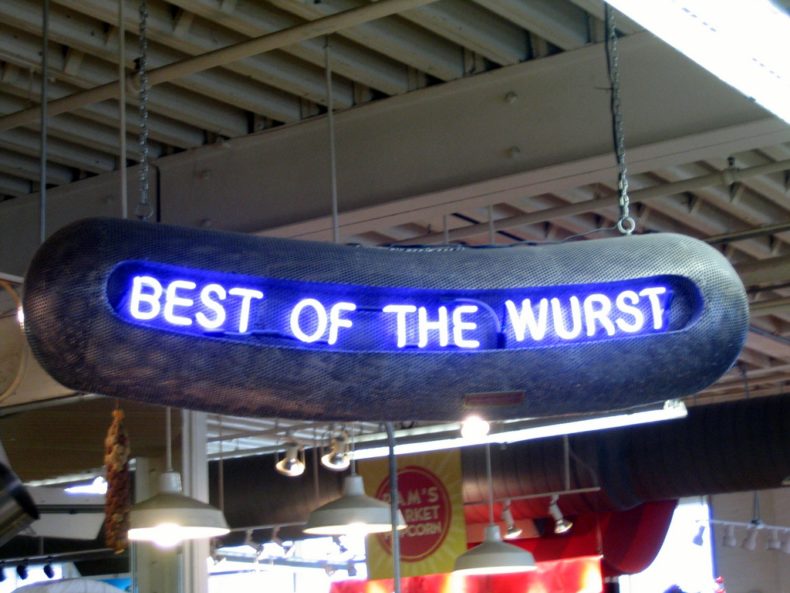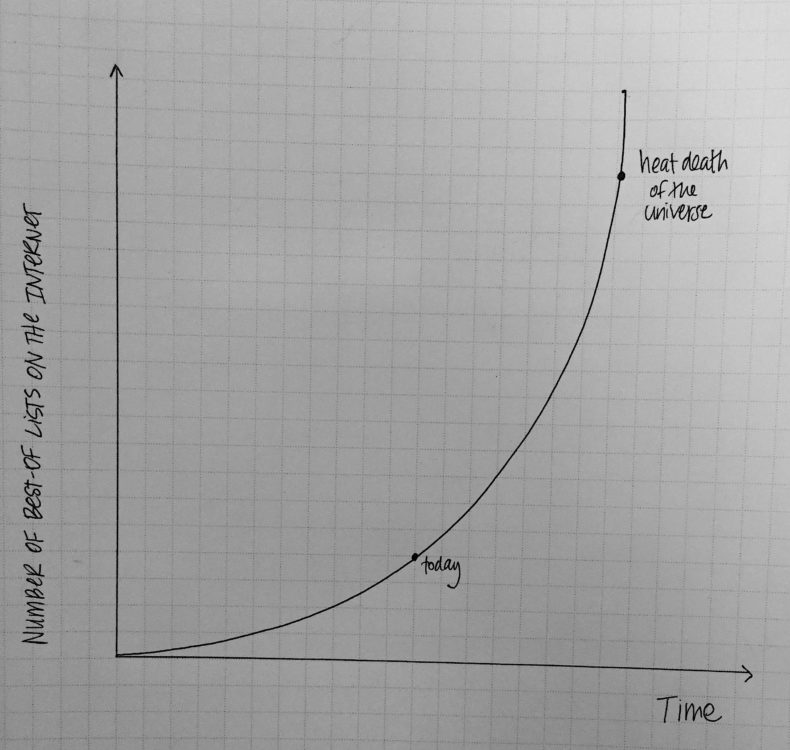
Recently I was looking for a distraction-free writing system. I knew I had heard about many. But they all seemed to have simple, hard to remember names. (A related complaint: companies that name themselves words like “medium” so that when you’re trying to figure out how to do something you cannot search “medium format image” when you’re trying to figure out how to format an image on Medium.) Anyway, I googled “distraction free writing system,” because as you can see I am easily distracted. The first result was an article from 2010. Half of tools picked didn’t even exist anymore.
This happens to me a lot. I wanted a way to search Twitter images — four of the five sites listed on my top result had defaulted on their hosting. I was looking for a site that would let me pull up Instagram images based on their geotags, three of those were dead. Aside from The Wirecutter, whose staff constantly updates their picks and maintains their offerings, most of these best of lists are good to at most a year.
For the endlessly hungry maw of the internet, best of lists are like Smarties. Tiny blips of pure sugar that can fuel a site from one sugar high to the next, capitalizing on schmucks like me who can’t remember what anything is called. Lifehacker has built a whole empire around best of lists. The Five Best Password Managers, the Five Best Grills, the Five Best Smartphone Running Apps.
Lifehacker isn’t alone here, they’re just one of a million sites who do this. When I helped run a women’s writing collective, our partners were constantly asking for best of lists. We played along, because we needed money — the best dating apps, the best . This was funding our real work, we told ourselves. Then a few months later, an editor came back asking for a piece on the best dating apps. “We just did that a few months ago,” we said. “Yeah I know,” she replied, “but I’m sure there are new ones out there you could cover.” I had to wonder if we should be even calling these “best of” lists at all, or rather just “here’s a list of apps that we could find information about online that did not previously appear on our other lists.”
Then there are all the sites that scrape and reproduce these best of lists. So for every one new “best sleep tracking app” list, there seem to be three or four versions of it living on the web. And even when the products of sites on offer haven’t disappeared, they’re probably not still the best options. I am going to guess that since 2010, new and better products have entered the market. So why does Google think that the most relevant best of list to serve me is from seven years ago?
We are creating a great pacific garbage patch of best of lists — a region of the web that looks fine from the surface but is thick with tiny particles of information that have decomposed and are no longer useful but can still get stuck in our guts and cause all kinds of intestinal problems.
Here is an extremely scientific graph, demonstrating the problem:

Now, I am not saying we should ban best of lists. I personally own at least 10 objects that I bought on the Wirecutter’s recommendation. (Full disclosure, I have also reviewed products for the Wirecutter/Sweethome sites.) And app lists are easy to write, quick to publish, and they’re the kind of things people search for. And they can be useful! Nobody can reasonably remember what all these apps and products are called. So we’re all left to googling “best recipe saving app” when we need it.
So here is my modest proposal: best of lists should self destruct after a year. Let them live their lives, serve their time, help us all out, and then go quietly into the night. And we don’t even have to delete them entirely — we should certainly save them for posterity. They should retire into some kind of archive, a museum of recommendations of sorts. A place where we can go and see what we all thought was going to be the next Twitter, which weird dating apps we were recommending, and which grills were arbitrarily picked as “the best” by people who had never cooked anything on them.
Lists could be updated, and renew their year-long timer. But without a true update, they would spend their golden years away from the front page of Google, away from us confused users who don’t really want to wade through a seven year old list of links that mostly don’t work.
Image: Ryan Lintelman, Wikimedia
An excellent suggestion! I try to cross reference user reviews with best-of lists but that gets time consuming. In the end, online shopping can be as ‘slow’ as going out to a store.
Still a Byword app fan myself.
Why are these old lists even coming up in search results? Can Google’s algorithms not be taught somehow to recognize a “best of” list and downgrade it once all the links redirect to parked websites or 404 errors?
Yes!
The W3C should formalize a standard for expressing expiration dates in a documents metadata so search engines can index on that too.
On a similar note many sites don’t have a date the article was published. Even if you restrict your search by dates some sites re-publish old articles. No wonder we waste som much time on the internet.